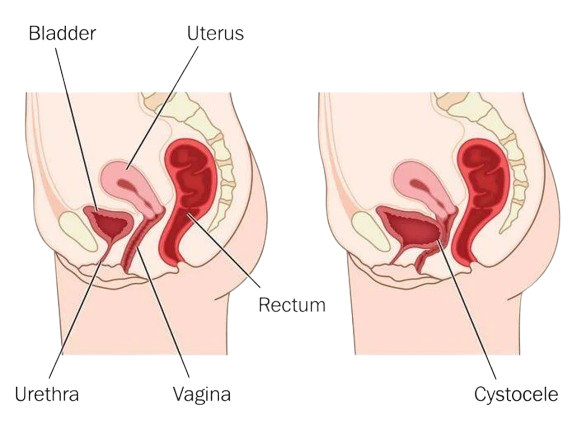🏥 Pelvic Organ Prolapse (POP) Surgeries Expertise of Dr. Yasir Iqbal
Pelvic Organ Prolapse (POP) occurs when one or more of the pelvic organs—such as the bladder, uterus, vagina, or rectum—drop from their normal position and bulge into the vaginal canal. This happens due to weakening or damage of the pelvic floor muscles and connective tissues, often after childbirth, menopause, or pelvic surgery.
POP surgeries aim to restore the normal position and function of these organs, relieving discomfort and improving quality of life.


📌 Symptoms of Pelvic Organ Prolapse:
Feeling of pressure or heaviness in the pelvic area
Bulge or protrusion from the vaginal opening
Difficulty with urination or bowel movements
Urinary incontinence or urgency
Discomfort or pain during intercourse
Lower back pain
🔍 Types of Pelvic Organ Prolapse
Depending on which organ is involved, prolapse may be:
Cystocele (bladder prolapse)
Rectocele (rectum prolapse)
Uterine prolapse
Enterocele (small intestine prolapse)
Vaginal vault prolapse (after hysterectomy)
🔧 Types of POP Surgeries
1. Anterior Repair (Cystocele Repair)
Repairs a prolapsed bladder
Strengthens the front vaginal wall
2. Posterior Repair (Rectocele Repair)
Corrects rectum prolapse into the vagina
Reinforces the back vaginal wall
3. Uterine Suspension or Hysterectomy
Uterine Suspension: Ligaments or mesh are used to lift and support the uterus
Hysterectomy: Removal of the uterus (if severely prolapsed or if other uterine issues exist)
4. Vaginal Vault Suspension
Restores support after hysterectomy
Can be done through the vagina (sacrospinous fixation) or abdomen (sacrocolpopexy)
5. Sacrocolpopexy (with or without Mesh)
Performed laparoscopically or robotically
Uses a mesh to attach the top of the vagina to the sacrum (lower spine)
Offers long-lasting support
6. Colpocleisis
A vaginal closure surgery
For women who no longer desire vaginal intercourse
Effective and low-risk for frail or elderly patients
🕑 Recovery
Hospital stay: 1–2 days (varies by procedure)
Return to light activity: 1–2 weeks
Full recovery: 4–6 weeks
Avoid heavy lifting and intercourse until cleared by the surgeon
✅ Benefits of POP Surgery
Relief from pelvic pressure and bulging
Improved bladder and bowel function
Enhanced sexual comfort (in applicable surgeries)
Long-term pelvic support
⚠️ Potential Risks
Bleeding, infection, or injury to nearby organs
Recurrence of prolapse
Pain or discomfort
Mesh complications (if used)
Urinary issues (retention, incontinence)
🧠 Summary
Pelvic Organ Prolapse surgeries are effective solutions for restoring pelvic support and improving daily function and comfort. A tailored surgical approach—chosen based on the type and severity of prolapse, patient’s age, and reproductive goals—can provide excellent long-term outcomes.
Patient Feedback
Read what our satisfied patients say about Dr. Yasir Iqbal Lone.
Dr. Lone provided exceptional care during my surgery. Highly recommend his services!
John Smith
New Delhi
I am thoroughly impressed with Dr. Lone's expertise and caring nature. His staff is friendly, and I felt well taken care of throughout my treatment journey.
Emily Clark
Delhi NCR
